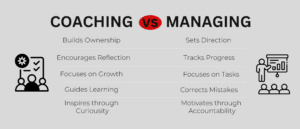Why Succession Planning Matters More Than Ever
Introduction
Succession planning is the process of identifying and developing the next generation of leaders who can take over key roles and responsibilities in an organization when the current incumbents retire, resign, or are unable to perform. It is a vital leadership skill that ensures the continuity, stability, and growth of the organization. However, many leaders neglect or postpone succession planning until it is too late, putting their organizations at risk of losing talent, knowledge, and competitive advantage.
The changing landscape of the workforce
There are several factors that make succession planning more important and urgent than ever. First, the exit of the baby boomers from the workforce is creating a leadership gap in many organizations, as they take with them decades of experience, expertise, and relationships. According to a survey by the Pew Research Center, about 10,000 baby boomers turn 65 every day, and by 2030, all baby boomers will be older than 65. This means that a large proportion of the current leaders will be retiring in the next decade, leaving behind a vacuum that needs to be filled by team members of younger generations.
Secondly, according to a report by Microsoft, 41% of the global workforce is considering leaving their current employer this year, and 46% are planning to make a major pivot or career transition. Some of the reasons for this trend include burnout, stress, dissatisfaction, lack of flexibility, and desire for more meaningful work. For Executives, this is even more pronounced. January 2025 set an all-time high, with 222 CEOs stepping down from their posts, a 14% jump over 2024 and the highest number since tracking was implemented in 2003. The results are on the heels of 2024’s record number of CEO departures, where the annual data for CEO departures marks a 16% increase from the previous year. This means that many organizations are facing the challenge of retaining and engaging their existing talent, as well as attracting and hiring new talent in a competitive market.
Third, the preferences and expectations of millennial-generation workers, who are projected to make up 75% of the workforce by 2025, are different from those of the previous generations. Millennials value work-life balance, purpose, autonomy, feedback, and development more than status, money, or loyalty. They are also more likely to switch jobs frequently, seek new opportunities, and pursue entrepreneurial ventures. This means that many organizations need to rethink their culture, policies, and practices to align with the needs and aspirations of the millennial workers, and to offer them more opportunities for growth, learning, and leadership.
The benefits of succession planning
Given the changing landscape of the workforce, succession planning is not only a necessity but also a strategic advantage for organizations that want to thrive in the future. Some of the benefits of succession planning include:
- It ensures the availability of qualified and capable leaders who can fill critical positions and drive the vision and mission of the organization.
- It reduces the costs and risks associated with turnover, recruitment, and training, and minimizes the disruption and loss of productivity caused by leadership transitions.
- It enhances the retention and engagement of high-potential and high-performing employees, who feel valued, recognized, and supported by the organization.
- It fosters a culture of learning, development, and innovation, where employees are encouraged to acquire new skills, take on new challenges, and share their knowledge and insights.
- It builds a diverse and inclusive leadership pipeline, where employees from different backgrounds, perspectives, and experiences are given equal opportunities to grow and contribute.
The role of coaching in succession planning
One of the most effective ways to implement and sustain succession planning is to leverage the power of an executive coach. The executive coaching process is a collaborative one which is personalized to the needs of each individual coachee, thereby facilitating coachees to achieve their personal and professional goals, enhance their performance, and unlock their potential. Executive coaching can help leaders and aspiring leaders in various aspects of succession planning, such as:
- Assessing their strengths, weaknesses, values, and motivations, and identifying their career aspirations and development needs to chart a course for their own succession management goals.
- Creating and executing a realistic and actionable development plan for organizational succession planning, with specific and measurable objectives, strategies, and milestones.
- Developing and refining the core competencies and skills required for current and future roles key to sustained organizational success, such as strategic thinking, decision-making, communication, collaboration, innovation, and emotional intelligence.
- Expanding their network, exposure, and influence, and building strong and trusting relationships with their peers, managers, mentors, and stakeholders, which helps to foster team member engagement and retention, which is critical to effective succession management planning.
- Handling the challenges, opportunities, and changes that come with leadership transitions, and adapting to the new expectations and responsibilities which support overall organizational agility.
- Providing and receiving constructive feedback, and learning from their successes and failures, to promote a culture of continuous growth and learning.
- Supporting and mentoring their successors, and ensuring a smooth and seamless handover of the key tasks and information to ensure that key leadership table transitions are managed with a minimum disruption to the organization’s operations.
The Client Perspective
Since 2006, the X5 Management team has supported clients across a number of sectors with executive coaching support designed to enhance organizational succession planning capacity. Through the provision of thoughtfully tailored approaches, we have equipped organizational leaders with the necessary tools and strategies to develop and prepare the organization’s next level of talent as an integral part of ongoing operations, rather than a last-minute effort when the organization is at risk. This proactive approach ensures a seamless transition and the continuity of strong leadership, vital for navigating the evolving business landscape.
Edmonton’s Coventry Homes is a valued X5 Management coaching client. Founder and CEO, Henri Rodier, has kindly provided his thoughts on the value of working with a coach to establish an organizational approach to succession planning:
“I think a lot of leaders misjudge how long it will take for them to figure out succession. It takes a long time and it is a moving target, so you need to start early so you can figure out where you think the organization needs to go. It’s also important to use the knowledge of the people around you – get opinions, listen to them, and leverage their experience. A coach can help you recognize that there are a lot of good people who can help you get to where you want to be.”
Conclusion
Succession planning matters as it is a key leadership objective which is best considered when an organization has time to plan, rather than being in a rush to adjust to sudden changes in circumstances. It is essential for the long-term success and sustainability of any organization, especially in the face of the changing workforce dynamics. Executive coaching can help leaders and aspiring leaders prepare for the future of their organizations, and work with them on how to make developing and preparing the organization’s next level of talent a regular task integrated into ongoing operations to minimize risk. If your organization is interested in how our X5 Management team can support you in your succession planning goals, please give us a call today! We would welcome the opportunity to Align Your Leaders and Teams to Achieve!
Want to dive deeper? Download ourExecutive Insight Briefing on Succession Planning to explore key strategies, common pitfalls, and how to proactively prepare for leadership transitions.
Follow us on LinkedIn for the latest leadership trends, coaching insights, and exclusive content to help you grow.
Author: Lenora Thomas
Lenora Thomas is the Director of Operations & Innovation at X5 Management, bringing over two decades of leadership in customer success, operations, and delivery across startup and scale-up environments. She specializes in building high-performing teams and fostering cultures of continuous learning and innovation. Read more about Lenora Thomas.
Exclusive Insights for Growth—Join Our Newsletter!




